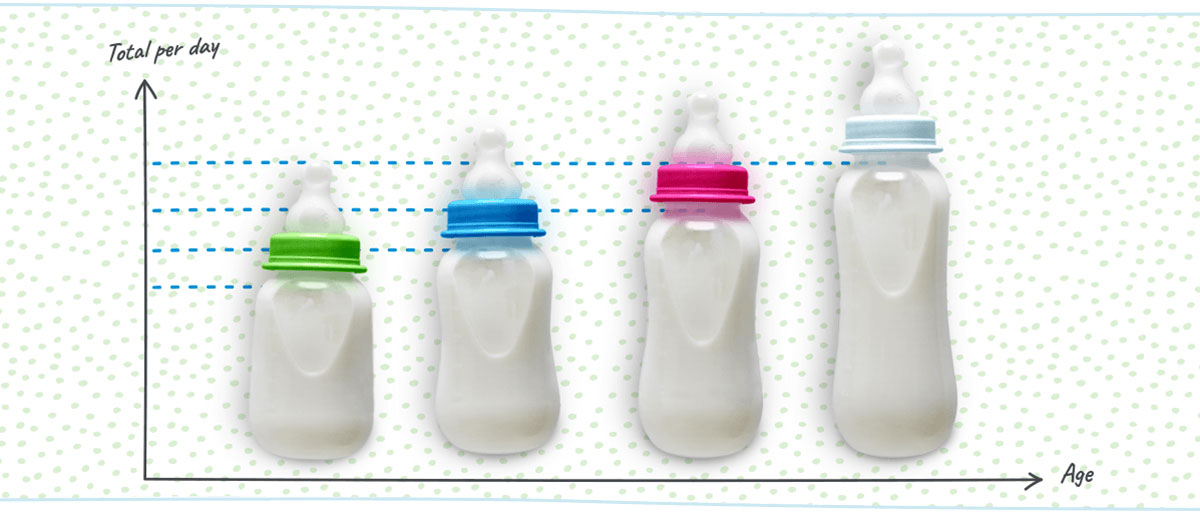You have decided that formula is right for you. So, what do you need to know to formula-feed your baby? Let’s start with how you should prepare formula and how much your baby needs.
Preparing baby formula is a very important step that you must get right. Closely follow the instructions on the label to make sure your baby gets the right nutrition.
As you know, your baby is unique, so it is impossible to say exactly how much formula she needs. It will even vary from one day to another. At first, your baby will drink small amounts because her stomach is still very small. As she grows, the amount will gradually increase. Time of day counts too. Your infant may be less hungry in the evening than in the morning, so watch for signs of hunger and satisfaction and let her control her own intake. Just like you, your baby has an appetite that varies according to how tired she is, her level of activity and her mood. Sometimes, she might simply not want to eat, so be aware and try not to worry if she occasionally resists feeding.
Generally, in a 24-hour period, your baby will drink the amounts indicated below:
| Age | Total per day |
| Within the first week | 180 mL to 600 mL (6 to 20 oz) |
| 2 to 3 months | 450 mL to 800 mL (15 to 27 oz) |
| 4 to 6 months | 850 mL to 1000 mL (28 to 33 oz) |
| 7 to 12 months | 750 mL to 850 mL (25 to 28 oz)
Varies depending on the amount of solid food that the baby eats. |
Remember, these quantities can vary from one baby to the next. If you feel that your baby’s feeding habits are veering too far from the norm, contact your health care professional.
Also, do not assume that because your baby is crying, she is automatically hungry. Your baby may be trying to communicate various feelings like boredom, discomfort, and the need for warmth and attention. If she is crying soon after her last feeding, you may want to check if a diaper change is in order or if she needs to be burped or simply held. Try responding to these other needs before quickly reaching for another bottle. It takes time to learn your baby’s signals, and we are here to help.
Let your baby be your guide and follow her feeding cues. There is real satisfaction to be felt in seeing your feeding efforts rewarded by a happy, growing, healthy baby. We have included some general guidelines which you can use to help guide you in the right direction.




